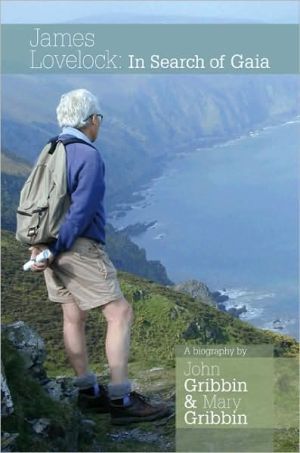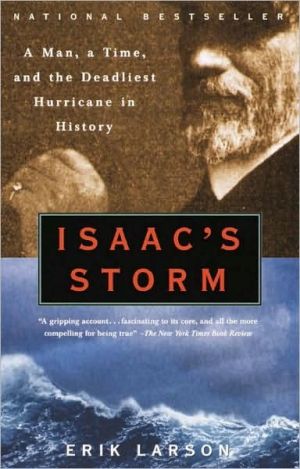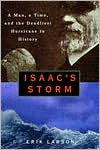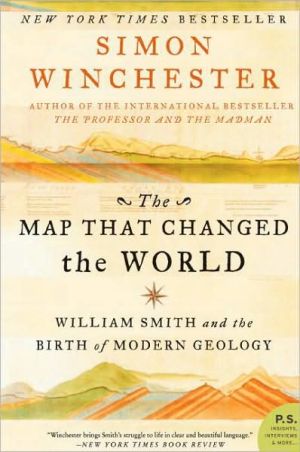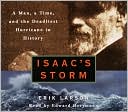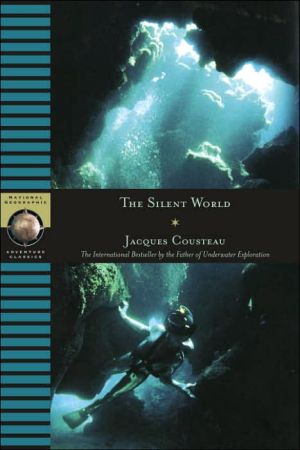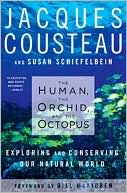James Lovelock: In Search of Gaia
In 1972, when James Lovelock first proposed the Gaia hypothesis—the idea that the Earth is a living organism that maintains conditions suitable for life—he was ridiculed by the scientific establishment. Today Lovelock's revolutionary insight, though still extremely controversial, is recognized as one of the most creative, provocative, and captivating scientific ideas of our time. James Lovelock tells for the first time the whole story of this maverick scientist's life and how it served as a...
Search in google:
"This book is an homage to Lovelock. The Gribbins have spent time with him, looked at his personal archives with him, and obviously the book is coming out of a deep admiration for his work. The biographical chapters are interspersed with science chapters, including a good one on the history of our understanding of the greenhouse effect, and others that cover Earth's biogeochemical cycles."--Tyler Volk, author of CO2 Rising"James Lovelock is one of the great thinkers of our time. His ideas and inventions have opened up new insights into our planet and the way it works, and the story behind them will appeal to a very wide audience. I am pleased to recommend this book."--Chris Rapley, director of the Science Museum, London Publishers Weekly Author and Earth Sciences professor Ward (of the Univ. of Wash.) has authored numerous books for non-specialists (Under a Green Sky, Rare Earth); this latest is a critical response to James Lovelock's Gaia concept, which argues that homeostatic physical and chemical interactions work to maintain Earth's habitability. Ward argues, passionately, that the opposite is true-that living organisms decrease Earth's habitability, hastening its end by perhaps a billion years. His conclusion, more political than scientific, is that humans must engineer the environment to sustain life. Ward provides examples of the food chain in failure, which results in an imbalanced environment and, ultimately, mass extinctions. Unfortunately, Ward's arguments (and some of his facts) are flawed; many examples focus on short periods of time, ignoring "first causes" that usually include a natural but temporally and/or geologically distant event (massive volcanic eruptions, ocean impacts, etc.). Moreover, ecological balance was indeed restored over the course of thousands or millions of years, as new organisms evolve to fill the ecological niche left by extinct species. Ward's criticisms have merit, but his Medea hypothesis is only valid on an evolutionarily insignificant scale; the reality is probably some combination of the Gaia and Medea approaches. Unfortunately, Ward doesn't help his case with misanthropic sentiment and occasionally garbled syntax. Copyright © Reed Business Information, a division of Reed Elsevier Inc. All rights reserved.
Citation for the Wollaston Medal ix Acknowledgments xi Preface xiii Introduction xxi ONE The Greenhouse before Gaia 1 TWO A Child of His Time 20 THREE Gaia before Gaia 48 FOUR A Medical Man 69 FIVE Inventing the Future 93 SIX Green Revolutions 113 SEVEN The Revelation 137 EIGHT What Doesn't Kill You Makes You Strong 163 NINE New Beginnings 192 TEN Coping with Catastrophe 211 CODA Making an Invention 248 Sources and Further Reading 251 Index 255
\ Australian Review of Public AffairsIt is engaging, well researched, well written and accessible to non-specialists. Anyone who is interested in life on Earth, or in the achievements of a remarkable man who has done much to deepen our understanding of life, should read the Gribbins' homage to Lovelock. It is a delight.\ — William Grey\ \ \ \ \ PublishersWeekly.com\ This masterful but accessible take on the life and work of James Lovelock, inventor of the Gaia concept, is the work of seasoned science writers, married duo John and Mary Gribbin. Beginning with a history of Earth Systems Science, the Gribbins go on to chart the youth, education, rebellion and independent thinking of the man who would give birth to a new field of science. . . . The Gribbins provide an excellent breakdown of his work, showing his concepts in action. With complete access to Lovelock and his papers, the Gribbins avoid a laudatory treatise with a careful study of the scientist's mind and the evolution of a breakthrough.\ \ \ Great Plains ResearchThis carefully crafted book outlines the history of ideas on global change along with Lovelock's life and contributions. It is well written, accessible to educated readers with a general science background. . . . I recommend it highly.\ — R.F. Diffendal, Jr.\ \ \ \ \ New York Review of BooksAs we try to assess Lovelock's highly individualistic work and decide whether his message is worth listening to, there is not better guide than John and Mary Gribbin's James Lovelock: In Search of Gaia. Essentially a dual biography, it deftly recounts in alternating chapters the development of climate change theory and the life of Lovelock himself.\ \ \ \ \ ScienceJohn and Mary Gribbin lead us on an exploration of how Lovelock came to his perspective of Earth. . . . They offer valuable insights not only into how Lovelock came up with the idea for Gaia but more generally how his mind works and where the ideas for his scores of inventions come from.\ \ \ \ \ Chronicle of Higher EducationIn their fascinating new biography, James Lovelock: In Search of Gaia, the science writers John and Mary Gribbin introduce us to a man who endorses this metaphor with much enthusiasm.\ \ \ \ \ BBC FocusThe Gribbins are the best science writers around. . . . [A]s a one-stop source on the life and works of one of the greatest figures of 20th-century thought, this book is unmissable.\ \ \ \ \ Austin American-StatesmanThe Gribbins have written a friendly, affectionate account of Lovelock interspersed with a useful history of earth system science.\ \ \ \ \ Australian Review of Public AffairsIt is engaging, well researched, well written and accessible to non-specialists. Anyone who is interested in life on Earth, or in the achievements of a remarkable man who has done much to deepen our understanding of life, should read the Gribbins' homage to Lovelock. It is a delight.\ \ \ \ \ Great Plains ResearchThis carefully crafted book outlines the history of ideas on global change along with Lovelock's life and contributions. It is well written, accessible to educated readers with a general science background. . . . I recommend it highly.\ \ \ \ \ New York Review of BooksAs we try to assess Lovelock's highly individualistic work and decide whether his message is worth listening to, there is not better guide than John and Mary Gribbin's James Lovelock: In Search of Gaia. Essentially a dual biography, it deftly recounts in alternating chapters the development of climate change theory and the life of Lovelock himself.\ — Tim Flannery\ \ \ \ \ ScienceJohn and Mary Gribbin lead us on an exploration of how Lovelock came to his perspective of Earth. . . . They offer valuable insights not only into how Lovelock came up with the idea for Gaia but more generally how his mind works and where the ideas for his scores of inventions come from.\ — Lee R. Kump\ \ \ \ \ Financial Times[A] new and highly readable biography . . . fascinating for what it reveals of the man himself.\ \ \ \ \ Sunday Times[A]bsorbing.\ \ \ \ \ Chronicle of Higher EducationIn their fascinating new biography, James Lovelock: In Search of Gaia, the science writers John and Mary Gribbin introduce us to a man who endorses this metaphor with much enthusiasm.\ — Michael Ruse\ \ \ \ \ Independent[An] absorbing new biography . . . the Gribbins' enormous scientific knowledge and clarity of expression make equally comprehensible Lovelock's initial Gaian vision, and the frightening conclusion to which it has now led him.\ \ \ \ \ Literary Review[O]ne of the great scientific biographies, featuring a brilliantly lucid account of the evolution of the Gaia theory.\ \ \ \ \ BBC FocusThe Gribbins are the best science writers around. . . . [A]s a one-stop source on the life and works of one of the greatest figures of 20th-century thought, this book is unmissable.\ — Henry Gee\ \ \ \ \ Sunday Telegraph[G]ives a good sense of Lovelock's inspirational, independent spirit.\ \ \ \ \ Austin American-StatesmanThe Gribbins have written a friendly, affectionate account of Lovelock interspersed with a useful history of earth system science.\ — Roger Gathman\ \ \ \ \ ChoiceWriters John Gribbin and Mary Gribbin present Lovelock's life story in a very open manner, blending the economic consequences of his life decisions with personal and scientific themes. They present a historical narrative of the development of the Gaia theory, but in doing so they achieve a far richer outcome—a clear understanding of the core elements of the Gaia theory itself.\ \ \ \ \ Chronicle of Higher EducationIn their fascinating new biography, James Lovelock: In Search of Gaia, the science writers John and Mary Gribbin introduce us to a man who endorses this metaphor with much enthusiasm.\ — Michael Ruse\ \ \ \ \ New York Review of BooksAs we try to assess Lovelock's highly individualistic work and decide whether his message is worth listening to, there is not better guide than John and Mary Gribbin's James Lovelock: In Search of Gaia. Essentially a dual biography, it deftly recounts in alternating chapters the development of climate change theory and the life of Lovelock himself.\ — Tim Flannery\ \ \ \ \ Publishers WeeklyAuthor and Earth Sciences professor Ward (of the Univ. of Wash.) has authored numerous books for non-specialists (Under a Green Sky, Rare Earth); this latest is a critical response to James Lovelock's Gaia concept, which argues that homeostatic physical and chemical interactions work to maintain Earth's habitability. Ward argues, passionately, that the opposite is true-that living organisms decrease Earth's habitability, hastening its end by perhaps a billion years. His conclusion, more political than scientific, is that humans must engineer the environment to sustain life. Ward provides examples of the food chain in failure, which results in an imbalanced environment and, ultimately, mass extinctions. Unfortunately, Ward's arguments (and some of his facts) are flawed; many examples focus on short periods of time, ignoring "first causes" that usually include a natural but temporally and/or geologically distant event (massive volcanic eruptions, ocean impacts, etc.). Moreover, ecological balance was indeed restored over the course of thousands or millions of years, as new organisms evolve to fill the ecological niche left by extinct species. Ward's criticisms have merit, but his Medea hypothesis is only valid on an evolutionarily insignificant scale; the reality is probably some combination of the Gaia and Medea approaches. Unfortunately, Ward doesn't help his case with misanthropic sentiment and occasionally garbled syntax. \ Copyright © Reed Business Information, a division of Reed Elsevier Inc. All rights reserved.\ \
